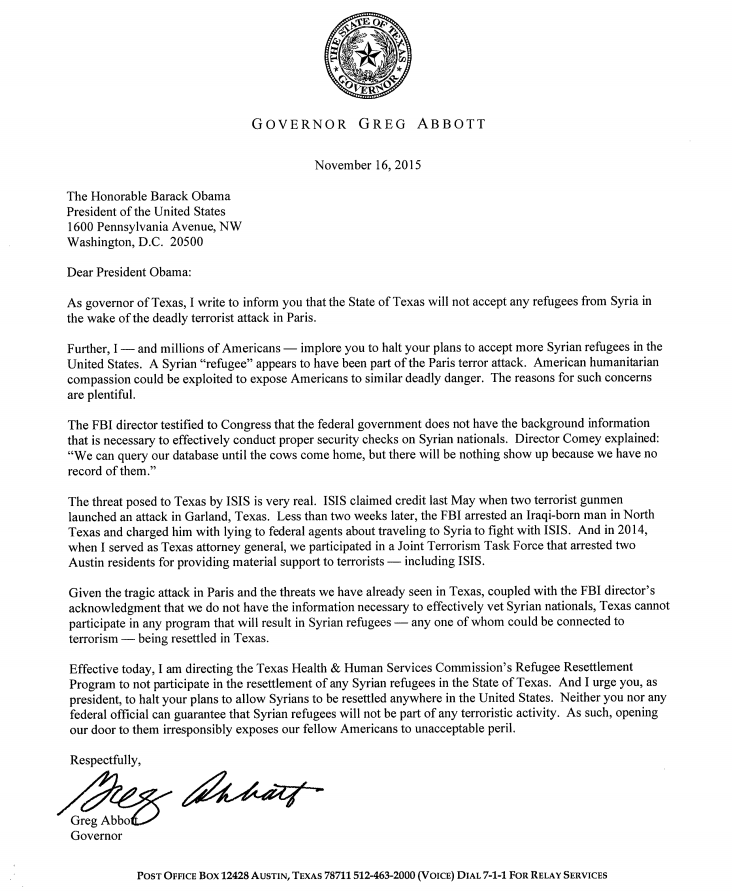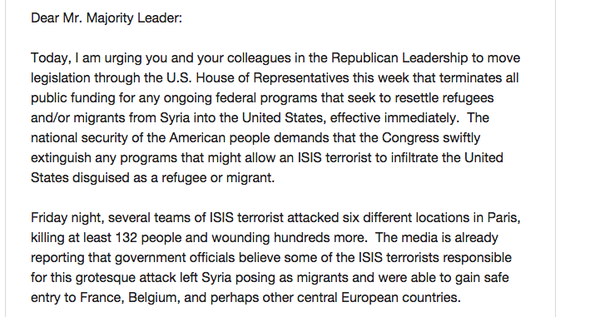Kudos to Gov. Peter Shumlin
SOUTH BURLINGTON – Vermont Gov. Peter Shumlin said Monday that governors who turn away Syrian refugees are “stomping” on American values.
As of early Monday afternoon, nine Republican governors had said they would attempt to stop the relocation of refugees from Syria because of safety concerns following Friday’s deadly attacks in Paris.
“The governors who are taking those actions are stomping on the qualities that make America great,” Shumlin said at an unrelated news conference Monday morning, “which is reaching out to folks when they’re in trouble and offering them help, not hurting them.”
As of September, the United States had accepted 1,854 refugees fleeing the civil war in Syria. The war has displaced about 4 million people.
Shumlin said he believes seven or eight refugees from Syria are being considered for placement through the Refugee Resettlement Program in Vermont, and he believes the state can take more.
“It’s the spirit of all Vermonters to ensure that when you have folks who are drowning, who are dying in pursuit of freedom, that Vermont does its part,” Shumlin said.
Shumlin emphasized what he called the “rigorous” screening process for refugee resettlement.
“We root out folks who should not be accepted,” Shumlin said.
As Thanksgiving approaches, it seems xenophobia is ruling the day with the red-staters.
Louisiana Gov. Bobby Jindal (R) issued an executive order instructing all “departments, budget units, agencies, offices, entities, and officers of the executive branch of the State of Louisiana” to “utilize all lawful means to prevent the resettlement of Syrian refugees in the State of Louisiana while this Order is in effect.”
Can they do this? In a word, no.
The problem for Jindal, Abbott and the other governors opposed to admitting refugees, however, is that there is no lawful means that permits a state government to dictate immigration policy to the president in this way. As the Supreme Court explained in Hines v. Davidowitz, “the supremacy of the national power in the general field of foreign affairs, including power over immigration, naturalization and deportation, is made clear by the Constitution.” States do not get to overrule the federal government on matters such as this one.
Just in case there is any doubt, President Obama has explicit statutory authorization to accept foreign refugees into the United States. Under the Refugee Act of 1980, the president may admit refugees who face “persecution or a well-founded fear of persecution on account of race, religion, nationality, membership in a particular social group, or political opinion” into the United States, and the president’s power to do so is particularly robust if they determine that an “unforeseen emergency refugee situation” such as the Syrian refugee crisis exists.
The vetting of Syrian refugees to the U.S. (we’re only going to be taking in 10,0000) is arduous:
And entering the U.S. as a refugee is by far the most difficult and complex of all routes in; refugees are the single most vetted population entering the country.
All those seeking to come as refugees must first be registered by the UN Refugee Agency, which identifies the families most in need. UNHCR screens each family, painstakingly documents their family composition and history of flight from Syria, then refers those who best qualify for the U.S. resettlement program on to the federal government.
The U.S.’s own vetting process then kicks in, with the Department of Homeland Security conducting in-person interviews, gathering detailed biographical and biometric data and conducting multiple background checks that include combing through multiple federal agencies’ respective consular, law enforcement, intelligence and national security databases.
Expertly trained officers from the Department of Defense, the Federal Bureau of Investigation and multiple intelligence agencies are involved in vetting refugees before they are approved to travel to America. Further screening is also conducted when refugees arrive in the U.S., after their first year here, and if and when they apply for citizenship.
The process takes 18 to 24 months, which makes it harder. For example, the medical screening is only valid for 6 months, so you might have to repeat this process a couple times before all is said and done.
Keep in mind that many countries in Europe will accept a refugee application based simply on a case file.
Here’s one Syrian refugee’s family’s story.
And another from a local family.
UPDATE: Ben Carson denamds end to federal aid to Syrian refugees (remember, these are people running away from ISIS):
NUMBERS TO CONSIDER from the Economist
Of the 745,000 refugees resettled in the U.S. since September 11th, only two Iraqis in Kentucky have been arrested on terrorist charges, for aiding al-Qaeda in Iraq.
And that’s it. NONE — ZERO — NADA — have been arrested for committing domestic terrorism.
UPDATE — Booooo to New Hampshire Gov. Maggie Hassan, who is also challenging Sen. Kelly Ayotte (R-N.H.) for her Senate seat. She is the first Democrat to express support for halting the flow of refugees.



